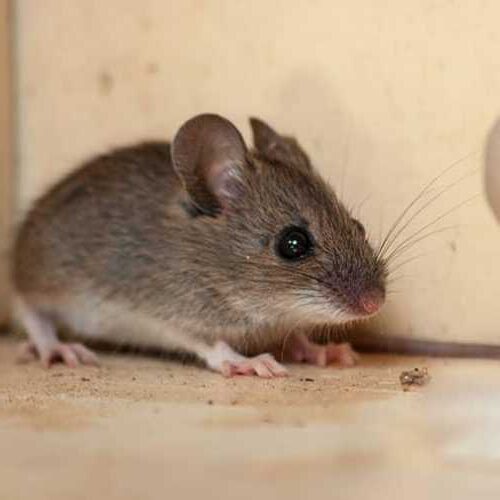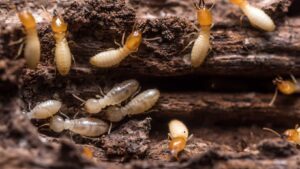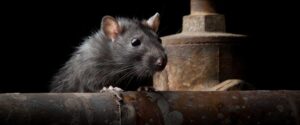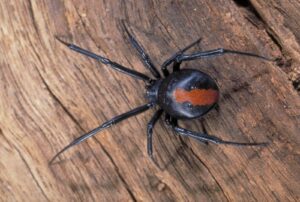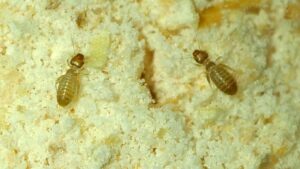House Mouse (Mus musculus)
The House Mouse is a small rodent species commonly found in various parts of the world, including the Central Coast, NSW, Australia. These tiny pests can cause considerable property damage and pose health risks to humans due to the diseases they carry. This guide will explore the identification, behavior, and control methods for the House Mouse, equipping you with the knowledge to protect your home and family from these unwelcome pests.
Identification and Characteristics:
- Size: House Mice are the smallest of the three, with a body length of 7-10 cm and a tail that is roughly the same length as the body.
- Color: Their fur ranges from light brown to dark gray with a lighter-colored belly.
- Physical Features: House Mice have a small, slender body, large ears, and a pointed snout. Their tail is covered with fine hair, unlike the scaly tails of rats.
Behavior and Habitat:
House Mice are highly adaptable rodents that prefer to nest in small, concealed spaces within walls, under floorboards, or in cupboards. In the Central Coast, NSW, they can also be found in garages, sheds, and gardens around the home. These rodents are primarily nocturnal and are more active during the night.
These omnivorous rodents have a diverse diet, consuming a variety of food sources such as grains, seeds, fruits, and insects. They can also adapt to human environments, feeding on stored food items and waste.
Health Risks and Property Damage:
House Mice pose several health risks to humans, as they are carriers of diseases and pathogens, including but not limited to:
- Salmonellosis: A foodborne illness caused by the Salmonella bacteria, which can lead to gastroenteritis and severe dehydration.
- Lymphocytic Choriomeningitis (LCM): A viral infection transmitted through contact with rodent droppings, urine, or saliva, which can lead to neurological symptoms and, in severe cases, inflammation of the brain.
- Allergies and Asthma: House Mice can exacerbate allergies and asthma due to the allergens found in their droppings, urine, and dander.
In addition to health risks, House Mice can also cause significant property damage. They are known to gnaw on electrical wires, which can lead to electrical fires, as well as chew through insulation, wood, and plastic materials. Their nesting habits can result in structural damage to buildings and contamination of stored food items.
Prevention and Control Methods:
Preventing a House Mouse infestation is essential to protect your home and family from the associated health risks and property damage. Here are some effective prevention and control methods to consider:
- Sanitation: Proper sanitation is crucial to preventing rodent infestations. Keep your property clean and free from clutter, store food in sealed containers, and promptly clean up spills and crumbs. Regularly dispose of garbage and ensure your trash bins are properly sealed.
- Exclusion: Seal any potential entry points such as cracks, holes, or gaps in walls, foundations, and roofs. Pay special attention to areas around pipes, vents, and utility lines. Install metal mesh or wire screens over vents and windows to prevent rodents from entering your property.
- Trapping: If you suspect a House Mouse infestation, trapping can be an effective method for control. Use snap traps, live traps, or glue boards to capture the rodents. Place traps in areas where you have noticed signs of rodent activity, such as droppings, gnaw marks, or greasy tracks. Check traps regularly and use gloves when handling dead rodents to prevent the spread of disease.
- Baiting: Rodenticides can be used in severe infestations or when trapping methods prove ineffective. It is crucial to use bait stations that are tamper-resistant and properly labeled to minimize the risk of accidental poisoning of children or pets. Place bait stations in areas with signs of rodent activity and follow the manufacturer’s instructions for use. Always exercise caution and consider consulting a professional pest control expert when using rodenticides.
- Landscape Maintenance: Keep your yard well-maintained to reduce the availability of nesting sites for House Mice. Remove piles of debris, wood, or rocks that may provide shelter and nesting materials. Clean up pet food or birdseed spills and store outdoor trash bins away from your home to limit access to food sources.
- Professional Pest Control: If you are facing a severe House Mouse infestation or if DIY methods have proven unsuccessful, it may be time to consult a professional pest control expert. They can assess your property, identify the source of the infestation, and implement a customized treatment plan to effectively eliminate the rodents and prevent future infestations.
Conclusion:
The House Mouse is a common rodent species in the Central Coast, NSW, Australia, that poses health risks to humans and can cause significant property damage. By understanding their identification, behavior, and habitat preferences, you can take the necessary steps to prevent and control infestations. Implementing proper sanitation, exclusion, and landscape maintenance practices can help you keep your property safe and rodent-free.
If you are struggling with a House Mouse infestation, consider seeking professional assistance from a qualified pest control expert. They can provide you with the most effective solutions to rid your property of these unwelcome pests and help you maintain a safe and healthy living environment for you and your family.
Remember, prevention is always better than cure. By staying vigilant and taking timely action, you can protect your home and loved ones from the adverse effects of a House Mouse infestation in the Central Coast, NSW, Australia.

